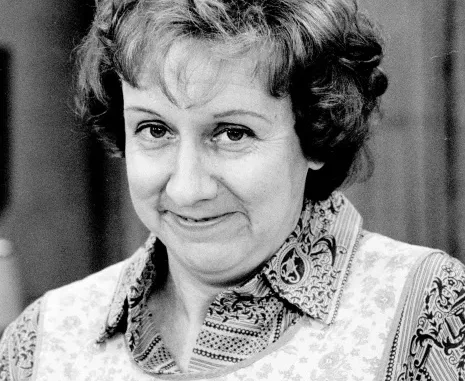
When thinking about iconic female TV characters of the 1970s, Edith Bunker from All in the Family stands out as a remarkable, unforgettable figure. Portrayed by the brilliant Jean Stapleton, Edith represented more than just the loving, good-natured wife of Archie Bunker. She embodied the quiet strength and evolving role of women during a decade of massive social change. Let’s dive into what made Edith Bunker a true icon of the 1970s.
1. A Portrait of Kindness and Compassion
Edith Bunker’s heartwarming kindness made her a beloved character. She approached life with an open heart and an unwavering sense of empathy — whether she was comforting her daughter Gloria, putting up with Archie’s endless grumbling, or welcoming strangers with open arms.
In a time when the feminist movement was gaining momentum, Edith showed that kindness wasn’t a weakness. It was a quiet form of strength. She didn’t need to be loud or assertive to prove her worth; her empathy and patience spoke volumes. Edith reminded viewers that being compassionate is powerful — a lesson that resonates even today.
2. Standing Strong in a Changing World
While Edith was gentle, she wasn’t afraid to stand up for herself or those she loved. One of the most powerful examples of this came during Edith’s 50th Birthday, where she courageously fought off an attacker — a moment that left audiences both heartbroken and inspired. This storyline showed the world that Edith was more than just a sweet homemaker. She had an incredible inner strength.
Moreover, she often questioned Archie’s outdated, prejudiced beliefs in her own subtle, endearing way. Edith represented the millions of women who navigated changing societal norms — balancing traditional family roles with newfound empowerment.
3. Breaking Stereotypes with Wisdom and Humor
Archie frequently called Edith a “dingbat,” but viewers knew better. Behind her innocent, light-hearted demeanor was a woman full of wisdom. Edith had a remarkable way of cutting through the noise, offering simple yet profound truths that often left Archie and the audience speechless.
She wasn’t book-smart in the traditional sense, but her emotional intelligence was unmatched. Edith’s ability to see the good in people — and her unwavering belief in humanity — made her a beacon of hope during a turbulent decade.
4. Redefining the Role of a Wife and Mother
In the 1970s, the role of women in the household was evolving. Edith embodied this shift beautifully. While she supported Archie and their family, she wasn’t a pushover. Her love for Archie was clear, but she also maintained her own sense of identity and moral compass.
Edith showed that being a wife and mother didn’t mean losing yourself. She balanced nurturing her family with standing up for what she believed was right — a balance that many women at the time strived for in their own lives.
5. A Timeless Legacy
Edith Bunker’s legacy goes far beyond All in the Family. She remains a symbol of kindness, strength, and authenticity — qualities that never go out of style. Jean Stapleton’s heartfelt portrayal ensured that Edith wasn’t just a character; she became a cultural icon.
In an era defined by rapid change and social upheaval, Edith Bunker represented the everyday woman: resilient, compassionate, and full of quiet wisdom. She showed that you didn’t need to be loud to make an impact — sometimes, the softest voices carry the most powerful messages.